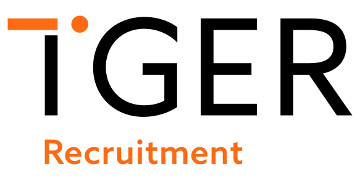The most important thing for leaders focussed on diversity, equity and inclusion (DEI) to do is the stay the course, said Reaves.
Reaves urged HR and other C-suite leaders to focus on ‘the influenceable middle’, rather than the people within a business who are change-averse, or the cohort that is keen and open to embracing change. The influenceable middle, he argues, are key drivers of the right environment for transformational change.
“Do not veer towards extremism,” he argued, “focus on moving the influenceable middle from awareness to advocacy. The more you keep them focused on trust, on pride in their work, on camaraderie, and really try to quest for what ‘for all, today’ might be, you will become that next great company, and you’ll write the next great chapter of your company.
"When it's executed right, DEI strategy can be a great change agent,” he said. “The work of DEI leaders is influencing HR professionals to think more about changing how we do business, and that's exciting.”
Read more: The leadership disconnect: acknowledging DE&I and taking action
He also reminded HR professionals to of the importance of creating employee cultures that prioritise a strong sense of belonging. “Our focus should not just be on DEI but also the 'B', for belonging. That's the most important thing to me."
LinkedIn data from 2020 suggests that UK employers hire twice as many people in roles that are specifically designed to focus on improving diversity and inclusion than any other country. But has the UK's commitment translated to more inclusive and representative workplaces? And has representation in senior roles like Reaves' improved?
"I’m seeing more representation," he said, "but not always for the right reason.
"George Floyd's murder was a catalytic event. Something that had been happening every day, and for years before, was caught on camera, and it made people become more curious about the way the world really looks.
"A lot of people may have hired people that look like us [both Reaves and I identify as black], but they didn't support them. I thought: Is this a [knee-jerk] reaction?
"People were trying. But were they really on the journey towards being [inclusive of all people]?
"It was a moment but it didn't make it quite to a movement. People who are hired into roles like mine, which is a privilege, we get to be on the journey towards a movement.
"Unless you have a seat at the table, and unless you've done the work to infuse DEIB into the business, and thread the needle so that everyone buys in, then people will start cutting and you won’t be empowered to make change. As we've all seen, companies are reducing resources in this area."
Read more: DE&I is mission critical for British business
How can DEI leaders work towards ensuring that diverse workforces remain a priority in this ever-more-constrained climate? "Focus on why," said Reaves.
"The questions you have to answer are: Why should I inspire every employee in a unique manner, meet them where they are and make them feel ‘I belong’? Why hire people that look different?
"Productivity, bottom-line growth, retention, engagement and the things that people understand as valuable KPIs for a positive business are at the end of this story. But step back: what drives that? Culture.
"Go back to leadership behaviours that drive a positive experience for employees – an experience that fosters pride, trust, camaraderie and that ‘for all’ [spirit]. That's how you do it."
"I’m excited by the potential for people to understand DEIB, its social impact and that an ecosystem of equity gives you a chance to evolve your culture to be more successful. [I’m excited by] the potential for more underrepresented voices to be at the table, and the potential for people whose socio-economic trajectory was limited, or non-existent, to be part of this fourth industrial revolution. Generations of lives will be changed."
Despite widely reported underfunding of DEI work in the business world, Reaves is optimistic that the work will continue, and continue to be crucial. "I really do believe there are opportunities," he said.
Referencing a Davos meeting of experts who were tasked with refining a strategy to end world hunger, but it didn't appear to Reaves that anyone in the room had experienced poverty-driven hunger themselves, Reaves said that business leaders rarely bring in "the very people who can get us to the solution quicker. That's why we have to do inclusion and belonging."










